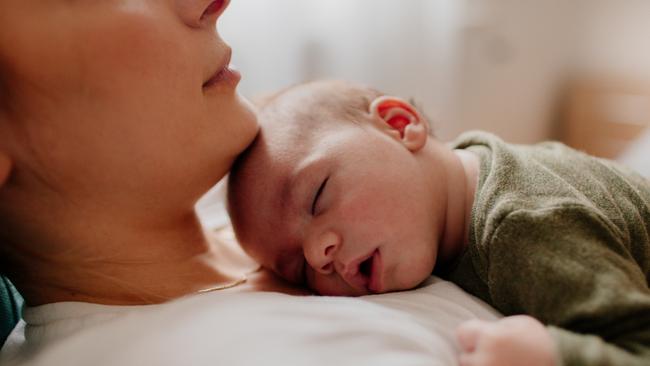Health strategies for the rest of your life
Sleep plays an important role in maintaining human function and performance, and caffeine cannot replace a good night’s sleep.

Sleep: the final frontier. Whether you’re a light snoozer or a deep dozer, an eight-hour regular or somewhere on the extremes, sleep plays an important role in maintaining human function and performance.
It isn’t just free time, something to chip away with work or your new year’s fitness regimen; sleep is a vital part of your daily cycle.
According to the Sleep Health Foundation, children aged three to five should be getting 10 to 13 hours of shut-eye every night, dropping back to eight to 10 hours between the ages of six and 13.
By adulthood, we should be getting seven to nine hours’ sleep, though not as much by the time we are over 65. As you plan the year ahead, block out some sleep time.
Caffeine cannot replace a good night’s sleep, especially if you’re driving. Danny Eckert, head of the Neuroscience Research Australia (NeuRA) sleep and breathing lab, says insufficient and disrupted sleep is dangerous.
“While you’re awake throughout the day chemicals such as adenosine build up in the brain which makes you feel sleepy — this isn’t something you can fight,” he says. “Driving fatigued is just as dangerous as driving under the influence, and fatigue combined with a legal amount of alcohol is even more likely to result in a crash. Rolling down the windows, turning the radio up and struggling to keep your eyes open while driving are all signs of drowsiness, which can lead to falling asleep behind the wheel or having impaired judgment on the road.”
Eckert suggests people establish a regular sleep routine, avoid caffeinated drinks after 2pm, avoid electronic devices one hour before bed and bring the lights down.
Scientists have given sleep-deprived people the opportunity of a one-hour nap — with the sound of news grabs and movie excerpts in one ear, and nonsense-speak from Alice’s Adventures in Wonderland in the other.
To test what the brain takes in during sleep, neuroscientists at Monash University and in France experimented on 24 people and found their brains remained sensitive to meaning even with such a cacophony of sound.
“By playing stories simultaneously to healthy participants during daytime naps we showed that sleepers have the tendency to prioritise stories that make sense over stories without meaning,” says Monash’s Thomas Andrillon.
“This means that, even when we sleep, we can segregate meaningful and meaningless sources of information and prioritise the meaningful stimuli. This work further shows the extent to which our brains can remain active during sleep.”
Sleeping less than six hours a night may increase your risk of cardiovascular disease, according to a study of almost 4000 Spanish bank workers. The study, published in the latest Journal of the American College of Cardiology, found people who slept less than six hours were 27 per cent likelier to have atherosclerosis compared with those who slept seven to eight hours.
Those who had a poor quality of sleep — often after alcohol and caffeine — were more likely to have atherosclerosis. “Many people think alcohol is a good inducer of sleep but there’s a rebound effect,” lead researcher Jose Ordovas says. “If you drink alcohol you may wake up after a short period of sleep and have a hard time getting back to sleep. And if you do get back to sleep, it’s often a poor-quality sleep.”
As our sleep needs gain more attention, there are all manner of people trying to badge themselves as experts, often to sell expensive devices you may or may not need. The key to navigating this billion-dollar market (in your sleep-deprived state) is to do your homework first, ask for evidence and remember every case is unique.
Brisbane company Oventus Medical has been working with CSIRO, RMIT and NeuRA on interventions for debilitating sleep apnoea. Oventus founder and chief executive Chris Hart says the ExVent valve match Continuous Positive Airway Pressure treatment was successful for more than 75 per cent of patients.
“This is the first time an oral treatment with a pressure valve to stabilise breathing has been incorporated into sleep apnoea treatment devices,” Hart says. “This breakthrough turns mouth breathing from villain to hero.”


